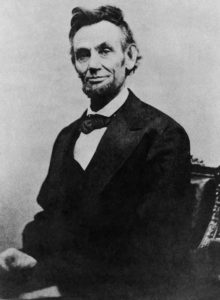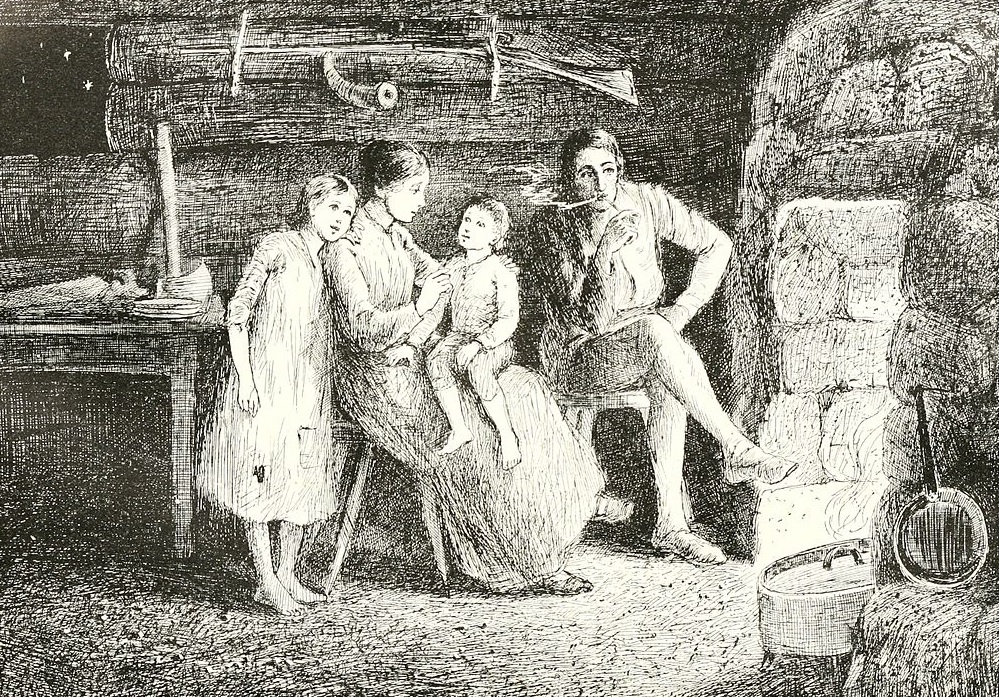© 2019 Don Pinson | [Download]
(Link not working? Right-click and select “Save As”.)
 The dying mother called her young son to her side. The nine-year-old boy would remember these words the rest of his life. She said to him, “Son, I want you to live as I have taught you; to love your Heavenly Father and keep His Commandments.” Later, after her memorial service had just ended and everyone was walking away from the grave, the little boy ran back and threw himself down on her grave sobbing, crying out to God to help him live like she had requested. That little boy was Abraham Lincoln. He would later say, “All that I am, my angel mother made me.” (Abraham Lincoln: The Man and His Faith, Frederick Owen (Tyndale House, 1976), p.5) His earliest memory of her was her teaching him to memorize the Ten Commandments as he sat as her feet (Ibid, p.6).
The dying mother called her young son to her side. The nine-year-old boy would remember these words the rest of his life. She said to him, “Son, I want you to live as I have taught you; to love your Heavenly Father and keep His Commandments.” Later, after her memorial service had just ended and everyone was walking away from the grave, the little boy ran back and threw himself down on her grave sobbing, crying out to God to help him live like she had requested. That little boy was Abraham Lincoln. He would later say, “All that I am, my angel mother made me.” (Abraham Lincoln: The Man and His Faith, Frederick Owen (Tyndale House, 1976), p.5) His earliest memory of her was her teaching him to memorize the Ten Commandments as he sat as her feet (Ibid, p.6).
This was the kind of education that produced generation after generation of respectful, productive, people who made America the most prosperous nation in world history. This way of educating produced government that was the freest in the world. In fact, it is attributed to Abraham Lincoln to have said, “The philosophy of education in one generation will be the philosophy of government in the next.” No nation can be greater than its method of education.
America’s early education system was based on the Bible. Noah Webster, the Father of that educational system, revealed its source when he stated:
“The Bible was America’s basic text book in all fields.”
(America’s God and Country, Bill Federer (1994), p.676)
Our forefathers simply institutionalized the method of education which the Bible taught. Harvard University was originally established for the education of ministers. Its original handbook said,
“Let every student be plainly instructed…to consider well [that] the main end of his life and studies is to know God and Jesus which is eternal life, John 17:3…”
(Education and the Founding Fathers, David Barton, p.3)
Noah Webster also revealed the purpose of education in his first American Dictionary published in 1828. His definition of the word education shows this. It reads:
“Education comprehends all that series of instruction and discipline which is intended to enlighten the understanding, correct the temper, form the manners and habits of youth, and fit them for usefulness in their future stations. To give children a good education in manners, arts and science, is important; to give them a religious education is indispensable; and an immense responsibility rests on parents and guardians who neglect these duties.”

This definition actually reveals the secret of America’s early success as a nation. It shows that their academic reason for educating was to “enlighten the understanding”. But there’s much more to education than academics. Education also was to “correct the temper”; here is the forming of Biblical morality in a child. Then, education was to “form the manners and habits of youth”. This is the expressing of Biblical character. Lastly, it was to equip them “for usefulness in their future stations”, or vocations in life. Webster then warns parents that “an immense responsibility rests [on them if they] neglect these duties.” Here is the Biblical teaching that parents will stand before God and give an account for the education they give (or allow) their children to receive.
The very purpose of education is to teach the Gospel to children. And that Gospel includes teaching them reading, math, and science the way the Bible teaches it. It further means that we teach them to operate for their children the cultural institutions of education, economy, and government the way the Bible commands them to be operated.
The last words Jesus spoke before He ascended to heaven were:
“All authority has been given to Me in heaven and on earth. Go therefore and…teach…” (Matthew 28:16-19)
Think about it; because if you don’t, someone else will do your thinking for you—and for your children! And you won’t like what that brings to you. I’m Don Pinson; this has been Think About It.
